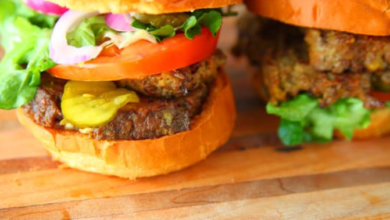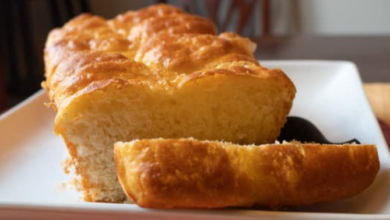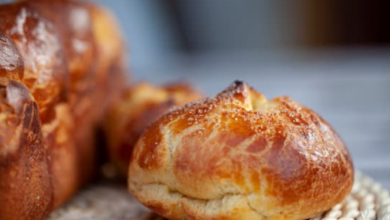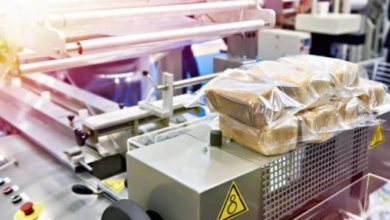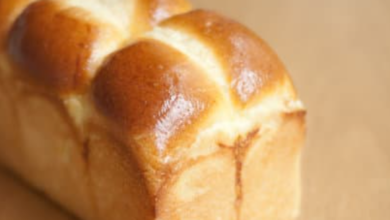What Makes Brioche Softer Than Other Breads?
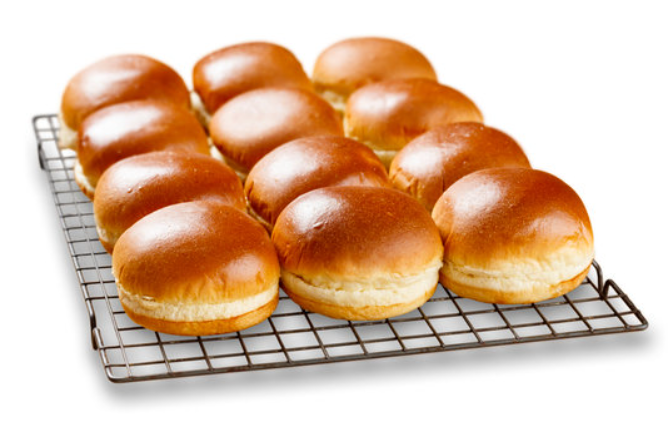
What To Know
- It also helps to activate the yeast, ensuring a proper rise and an even crumb.
- Yeast is the invisible force that transforms brioche dough into a light and fluffy masterpiece.
- Baking at a moderate temperature allows the dough to rise slowly and evenly, resulting in a crust that is golden-brown and a crumb that is soft and irresistible.
Brioche, with its golden-brown crust and ethereal softness, has captivated bread lovers worldwide. But what is the secret behind its unparalleled tenderness? This culinary exploration delves into the science and techniques that orchestrate the magic of brioche’s irresistible texture.
The Role of Butter
Butter, the cornerstone of brioche, plays a crucial role in its softness. Its high fat content lubricates the dough, preventing the gluten strands from forming a tight network. This results in a crumb that is both tender and airy.
The Importance of Eggs
Eggs are another key ingredient in brioche. Their proteins bind the dough together, creating a strong yet pliable structure. Additionally, the yolks contribute richness and moisture, further enhancing the softness of the bread.
The Magic of Milk
Milk, when incorporated into brioche dough, adds moisture and tenderness. It also helps to activate the yeast, ensuring a proper rise and an even crumb.
The Power of Yeast
Yeast is the invisible force that transforms brioche dough into a light and fluffy masterpiece. As it ferments, it produces carbon dioxide gas, which creates tiny air pockets throughout the dough. These pockets give brioche its characteristic softness and airy texture.
The Art of Kneading
Proper kneading is essential for developing the gluten in brioche dough. However, unlike other breads, brioche dough should be kneaded gently and for a shorter period. Over-kneading can toughen the dough, compromising its softness.
The Importance of Proofing
Proofing, the process of allowing the dough to rise, is crucial for brioche’s softness. The first rise allows the yeast to activate and produce gas. The second rise, after shaping, helps to relax the dough and further develop its tenderness.
The Final Touch: Baking
The final step in the brioche-making process is baking. Baking at a moderate temperature allows the dough to rise slowly and evenly, resulting in a crust that is golden-brown and a crumb that is soft and irresistible.
The Legacy of Brioche
Brioche has a rich history, dating back to the 16th century in France. Its name is derived from the French word “broyer,” meaning “to knead.” Over the centuries, brioche has become a culinary staple, enjoyed for its exceptional softness and versatility.
Common Questions and Answers
Q: Why is my brioche dough too dense?
A: Over-kneading or insufficient proofing can result in a dense dough. Ensure gentle kneading and allow ample time for the dough to rise.
Q: How can I make my brioche even softer?
A: Increase the butter and egg content slightly. Additionally, allow for a longer second rise to fully relax the dough.
Q: Can I use other liquids besides milk in brioche dough?
A: Yes, you can substitute water or buttermilk for milk. However, milk provides richness and tenderness that other liquids may not offer.
